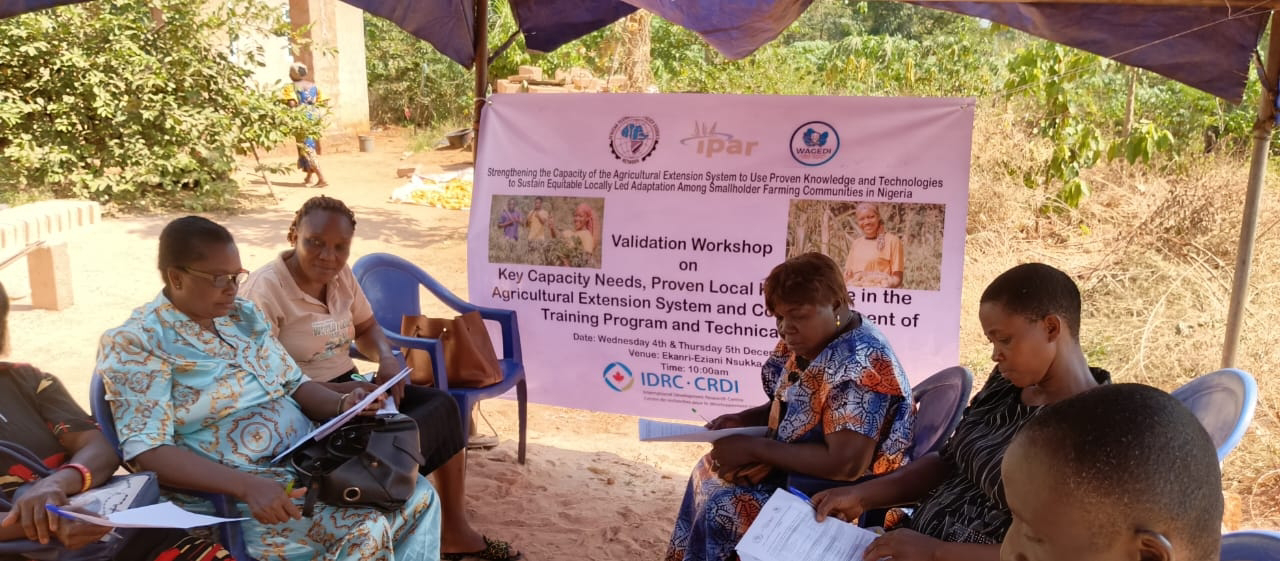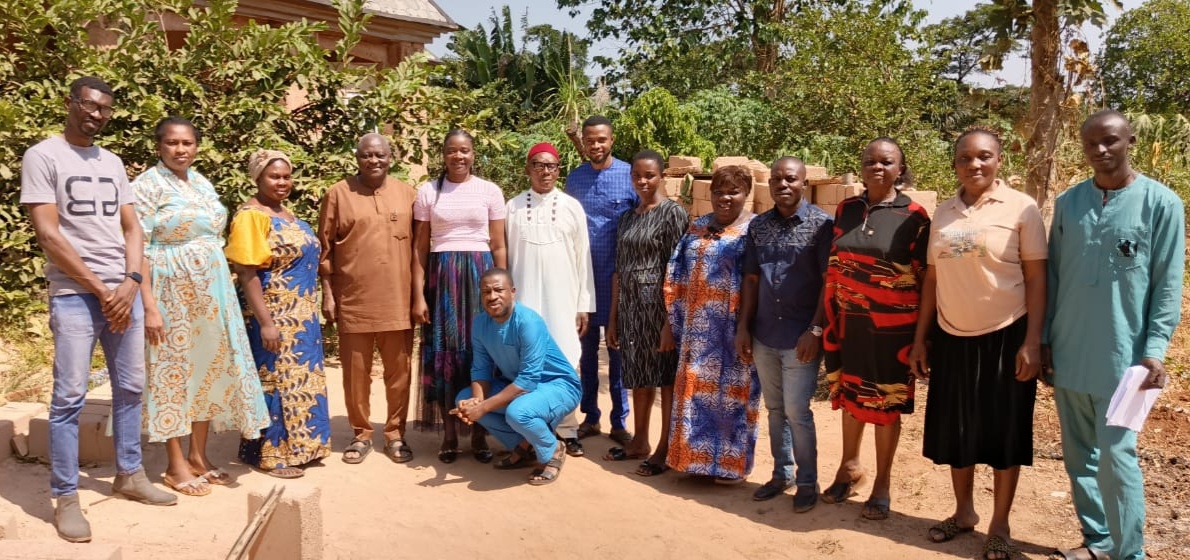In the face of the growing effects of climate change around the globe, the African Technology Policy Studies Network (ATPS), has validated the key capacity needs of farmers and extension agents in Nsukka to help mitigate the effects of this environmental menace in agriculture and to reduce wastage in farming.
ATPS is a transdisciplinary network of researchers, policy-makers, private sector, and civil society actors that promotes the generation, dissemination, use and mastery of science, technology and innovation (STI) for African development, environmental sustainability, and global inclusion.
Speaking during a 2-day Validation Workshop on Key Capacity Needs, Proven Local Knowledge in the Agricultural Extension System and Co-development of Training Program and Technical Support, organised by ATPS and sponsored by the International Development Research Center of Canada, (IDRC), recently held at Eziani community in Nsukka Local Government Area of Enugu State.
Prof. Michael Madukwe, National Coordinator, ATPS Nigeria said that the validation workshop with the theme "Strengthening the Capacity of Agricultural Extension System to Use Proving Knowledge and the Technologies to Sustain Equitable Locally Led Adaptation Among Small Holders Farming Communities in Nigeria" is part of a research on capability for agricultural extension extension system to manage the issue of climate change effectively.
"We carried out research funded by IDRC, we are looking at capabilities for agricultural extension system, made up of farmers, researchers, extension agents, policymakers, among others, targeted at handling the issues of climate change adaptation, particularly those adoption techniques that were developed by farmers which we call 'Locally-led.'
"We are trying to find out what capabilities are in those systems, to get those things to farmers, expand it, and provide the training that they need to move forward.
"So part of our program is to ask the farmers that thing (their needs) they told us is it correct, if it is correct, say it is correct, and give us the level of importance of all the things we find out. After giving us the priority of area of training needs, we identify the area they said that they need training, then we will look for experts in the identified areas to train the farmers, extension agents, researchers, and other stakeholders," he said.
Madukwe, who is also a lecturer at the Department of Agricultural Extension, University of Nigeria, Nsukka, commended ATPS for extending the program to farmers, extension agents, and other stakeholders in Nsukka.
He also commended IDRC and other partners for sponsorship, stressing that the program would also help to mitigate the effects of climate change on agriculture, as well as reduce farm wastage.
Also speaking, Prof. Joel Nwakaire, ATPS representative and the project coordinator said that ATPS works across Africa with the vision of using science, technology, and innovation as a means for achieving sustainable development in core areas like agriculture, environment, health, and energy, among others.
He said that the scale initiative program idea is to use proven knowledge and technology to sustain locally lead adaptation among smallholder farmers in Nigeria and Senegal.
He listed some of the training needs for farmers, extension agents, and researchers to include; Climate Change Adaptation, Pest and Disease Management, Financial Literacy And Access to Climate Finance, Use of Digital Tools and ICT, Leadership and Community Mobilization, Crisis and Disaster Risk Management, Monitoring, Evaluation and Data Collection, Innovation and Technology Transfer, Gender And Social Inclusion, among others.
"Farmers have laid out their needs to effectively adapt to climate change, now, these needs require training on it, and the project initiative focuses on helping the farmers, extension agents, and their researchers who are out of the system called extension system to develop the required skills to adapt to climate change. Everybody understands how climate change affects agricultural production.
"Today we and those farmers who mentioned their needs are together, they are prioritizing and saying yes, these are their needs, and these are their top needs, from which we will train them effectively at no cost. These training needs are designed to enhance capability for locally-led climate adaptation and the effective knowledge brokering within the extension system," he said.
Earlier in a remarkable, Mrs Angela Okolo, Director of Extension Services, Enugu State Ministry of Agriculture, commended ATPS for their support to farmers and extension agents, adding that training on the farmers' needs would boost their agricultural productivity, and get them acquainted to the modern farming technologies.
Responding on behalf of other participants, Mrs Calista Asogwa, an Extension Agent in charge of Nsukka zone, said that the needs validation program is a moral boost to extension agents, farmers, and other stakeholders in agricultural businesses in Nsukka zone.
While commending ATPS for choosing Nsukka for the training, she noted that the needs training when completed will help farmers to demonstrate resilience and adaptability in the face of the uncertainty brought about by climate change, as well as key into the modern techniques and technological ways of farming.

















No comments